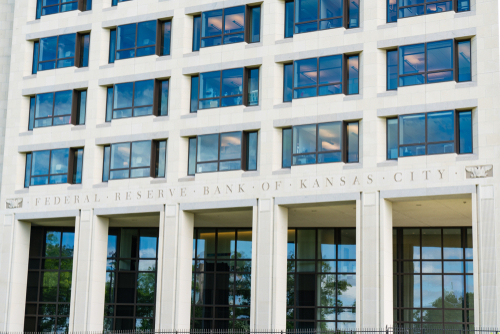U.S. Sens. Pat Toomey (R-PA), Tim Scott (R-SC), Thom Tillis (R-NC), and Cynthia Lummis (R-WY) criticized the Federal Reserve Bank of Kansas City for not turning over information about a master account that was awarded, then rescinded, to Reserve Trust.

Toomey, the ranking member of the Senate Banking Committee, sent a letter on June 8 requesting a briefing and documents on the decision to rescind Reserve Trustʻs master account. On June 16, Kansas City Fed President Esther George responded by saying the Kansas City Fed couldnʻt turn over information to the banking committee.
The senators followed up with another letter, criticizing the Kansas City Fed.
“The Kansas City Fed once again refuses to comply with a reasonable request for information about its unusual treatment of Reserve Trust’s master account,” the Senators wrote. “Your letter asserts that the Kansas City Fed ‘has acted appropriately and ethically in decisions related to [Reserve Trust] and other institutions that have sought a master account.’ But you have repeatedly rebuffed any attempt to subject your claim to public scrutiny, even though access to master accounts is a major public policy issue about which the Fed has twice solicited public comments in the past two years. By continually stonewalling Congress, you have essentially asserted that the Kansas City Fed is not subject to any oversight by Congress or the public. As one former Obama administration official said, ‘If the Kansas City Fed is not accountable to Congress for regulatory decisions, then to whom are they accountable?’”
George replied that the Kansas City Fed could not provide the requested information because it is considered confidential supervisory information (CSI). Toomey claims it is not CSI since the Kansas City Fed is not a supervisor for Reserve Trust.
The senators said the Kansas City Fed’s lack of transparency and accountability to Congress highlights the need to reform the regional Fed banks.
“Unfortunately, this type of obstructionism has become too common a response from the Kansas City Fed, other regional Fed banks, and the Fed itself—which, after all, are creatures of Congress—to congressional oversight inquiries from members in both parties,” the letter says. “It highlights the pressing need to reform the regional Fed banks to make them more transparent and accountable to Congress.”